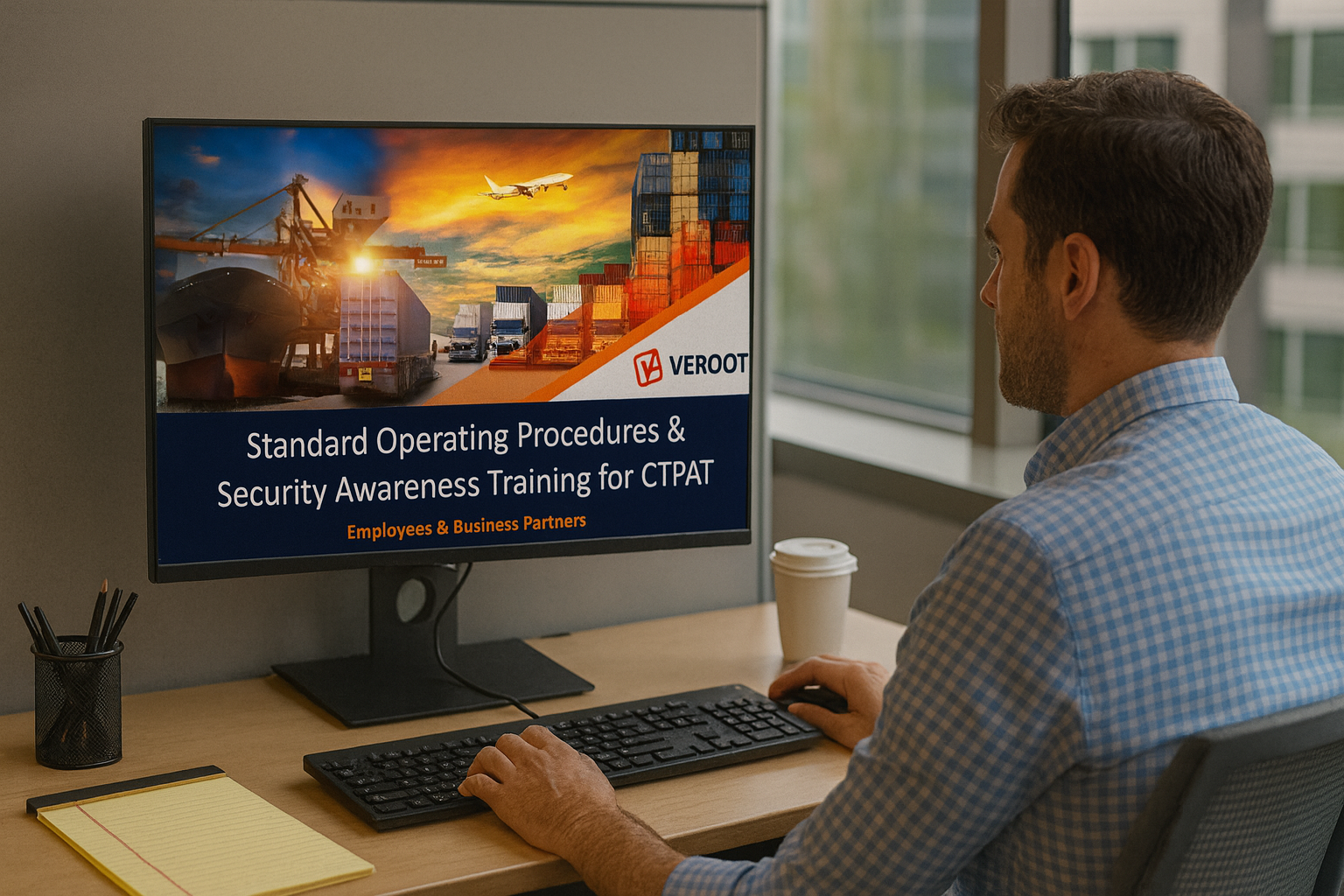CTPAT Compliance at Risk: How to Handle Non-Compliant Business Partners
Did you know that CTPAT certified companies can lose their CTPAT certification if their business partners fail to comply with CTPAT security...
2 min read
Cherie Patrick : Sep 8, 2025 2:27:20 PM

Maintaining compliance with the Customs Trade Partnership Against Terrorism (CTPAT) requires more than just policies and procedures, it demands active participation from employees, consistent testing, and regular audits. A company’s CTPAT certification is only as strong as the commitment of its workforce, making training and validation critical components of the program.
🛡️ Employee Training, Testing, and Audits for CTPAT Compliance
Maintaining compliance with the Customs Trade Partnership Against Terrorism (CTPAT) requires more than just policies and procedures, it demands active participation from employees, consistent testing, and regular audits. A company’s CTPAT certification is only as strong as the commitment of its workforce, making training and validation critical components of the program.
🎓 Why Employee Training Matters in CTPAT
Employees are the first line of defense against supply chain risks. CTPAT requires members to ensure that all staff, particularly those in sensitive or high-risk roles, are properly trained on:
Well-structured training not only satisfies CTPAT requirements but also fosters a culture of vigilance and accountability across the organization.
📝 The Role of Testing in CTPAT Compliance
Training alone is not enough as employees must also demonstrate their knowledge. CTPAT encourages organizations to conduct testing to validate employee understanding of CTPAT requirements. This can include:
Testing ensures employees retain critical knowledge and highlights areas where additional training may be necessary.
🔍 Audits: Measuring the Effectiveness of Your Program
Internal audits are a cornerstone of continuous improvement under CTPAT. Regularly scheduled self-assessments and third-party audits help companies verify whether training and testing are effectively implemented. Key focus areas include:
Audits not only keep organizations aligned with CTPAT standards but also demonstrate due diligence during external validations by U.S. Customs and Border Protection (CBP).
🌍 Building a Sustainable CTPAT Culture
Employee training, testing, and audits should not be seen as one-time requirements but as part of a continuous improvement cycle. Companies that integrate these elements into their daily operations strengthen their security posture and position themselves as trusted partners in the global supply chain.
At Veroot, we make CTPAT compliance simpler and more effective by providing the tools your company needs to train, test, and audit employees with confidence. Our Vendor Management System allows you to seamlessly distribute CTPAT training and testing electronically across your organization, ensuring every employee receives the right materials at the right time. With built-in tracking, Veroot automatically monitors pass/fail results, provides reminders for retraining, and generates clear audit trails to keep your compliance records up to date. By partnering with Veroot, you not only strengthen your employee readiness but also gain a streamlined, automated process that reduces administrative burden and ensures your company stays ahead of CTPAT requirements.
![]() For more information or to request a demo, visit Veroot's website at www.veroot.com/ctpat
For more information or to request a demo, visit Veroot's website at www.veroot.com/ctpat

Did you know that CTPAT certified companies can lose their CTPAT certification if their business partners fail to comply with CTPAT security...

For many CTPAT certified companies, their security program is pretty solid for requirements around procedures, training, facility controls, etc....

The CTPAT (Customs Trade Partnership Against Terrorism) validation process can be a critical moment for any company aiming to secure and strengthen...